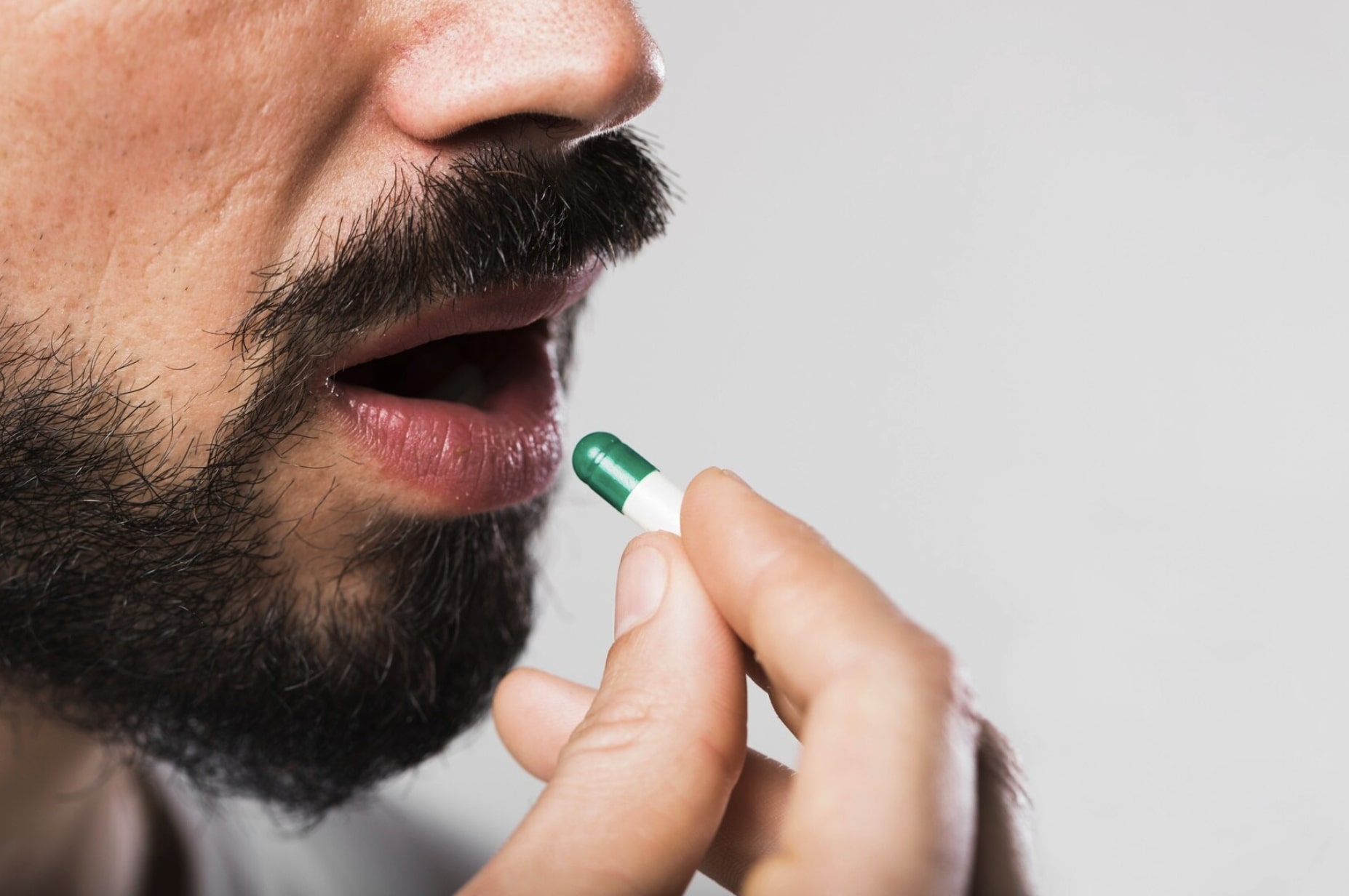Stress isn’t just a mental burden — it’s a powerful force that affects many aspects of your physical health, especially your hormones. For men, stress can have a significant impact on testosterone levels, which are a crucial part of everything from energy and mood to muscle strength and libido. In this article, we’ll dive into how stress directly influences testosterone production, why this matters to men, and what you can do to manage stress to boost your testosterone levels and improve your overall well-being.
How Stress Affects Testosterone Production
Stress is more than just a mental burden — it activates a powerful chain reaction in the body that directly impacts hormone balance. When you experience stress, whether it’s physical, emotional, or psychological, a small region of your brain called the hypothalamus triggers your body’s “fight or flight” response. This leads to a surge of stress hormones, most notably cortisol and adrenaline. (1)In short bursts, this response is helpful, it gives you the energy and focus to face challenges head-on. But when stress becomes chronic, cortisol levels remain elevated, and testosterone levels can be impacted. One study showed that men who slept less than five hours a night for one week experienced a 10–15% drop in testosterone levels. (2)Understanding the relationship between chronic stress and hormones is key to improving men’s health. High cortisol levels over time interfere with testosterone production. (3) This happens because the body prioritizes cortisol over testosterone when it’s under pressure, essentially putting your reproductive and anabolic (muscle-building) systems on the back burner to focus on survival.This imbalance can cause a cascade of negative effects, including reduced energy, decreased libido, trouble building muscle, poor recovery after exercise, and mood swings. The longer the stress persists, the more suppressed testosterone becomes.
Chronic Stress and Testosterone Suppression
Prolonged stress leads to sustained high cortisol levels, which can suppress testosterone production over time. The lower your testosterone levels get, the more fatigued and less motivated you may feel. A significant drop in testosterone can lead to symptoms like reduced muscle mass, weight gain, decreased libido, and poor sleep, all of which can make it even harder to handle stress. (4)Understanding the link between cortisol and testosterone can help men recognize that chronic stress is not just an emotional issue; it’s a biological one.
The High Cortisol – Low Testosterone Vicious Cycle
Once the body enters a pattern of chronic stress, a dangerous cycle can begin: high cortisol levels lead to low testosterone, which then exacerbates stress and worsens the body’s ability to cope with future stressors.
The Cycle in Action
- Chronic Stress: When life becomes a series of stressful situations, cortisol levels remain elevated.
- High Cortisol: Continuous elevated cortisol suppresses testosterone production.
- Low Testosterone: Testosterone’s drop leads to more fatigue, decreased energy, and poor mood, contributing to more stress.
- Worsening Stress Resilience: With reduced testosterone, it becomes harder to manage stress effectively, creating a negative chain reaction.
Common Symptoms of This Cycle
- Persistent fatigue
- Poor sleep quality
- Increased abdominal fat
- Mood swings and irritability
- Low libido and sexual dysfunction
- Reduced motivation or drive
- Difficulty building or maintaining muscle mass
- Brain fog or trouble concentrating
Breaking this cycle involves addressing both cortisol and testosterone levels through lifestyle changes, stress management, and, if needed, medical support.
Benefits of Managing Stress for Hormone Health
Effectively managing stress doesn’t just improve mental clarity; it can also have profound effects on physical health and hormone balance. When you reduce stress, you naturally lower cortisol levels, which allows testosterone production to rise, giving your body the chance to heal and restore balance.
How Stress Reduction Affects Testosterone
Stress reduction can play a substantial role in boosting testosterone. This is because:
- Lower cortisol levels give your body a better ability to produce testosterone.
- Balanced hormones lead to improved energy, mood, libido, and muscle recovery.
- Managing stress can also enhance mental clarity and focus, helping you perform better in both personal and professional situations.
Real-world performance improvements can be significant when stress is consistently managed. For example, men who prioritize stress reduction and hormone balance often report better sleep, increased motivation, and better overall health. (5)
Stress Reduction Techniques to Boost Testosterone Naturally
Fortunately, there are many natural ways to boost testosterone that also help reduce stress. These strategies don’t require any medical intervention — just a commitment to healthy lifestyle habits.
Prioritize Quality Sleep
Quality sleep is one of the most effective ways to reduce cortisol levels and support testosterone production. (6) During deep sleep, the body produces the majority of its testosterone, and getting 7–9 hours of quality sleep each night can help lower cortisol and restore your testosterone levels.
Exercise With Intent
Regular exercise, particularly a combination of moderate cardio and strength training, can lower stress and boost testosterone. However, too much intense exercise without proper recovery can elevate cortisol. Finding the right balance is key.Aim for 3-4 strength training sessions per week, focusing on compound movements like squats, deadlifts, and bench press, which have been shown to stimulate a greater testosterone response. (7)Limit high-intensity cardio sessions to 20-30 minutes, 2-3 times weekly, to avoid excessive cortisol production.
Practice Mindfulness and Breathing
Stress management practices like mindfulness meditation, yoga, and deep breathing exercises can effectively lower cortisol levels. These activities not only help reduce mental stress but also promote relaxation and hormone balance.
Eat a Hormone-Healthy Diet
Certain nutrients are critical for maintaining testosterone levels, including zinc, magnesium, vitamin D, omega-3 fatty acids, lean protein, and healthy fats. A diet rich in these nutrients supports hormonal health and can help manage cortisol levels. (8)
Reduce Stimulants and Alcohol
Excess caffeine and alcohol can spike cortisol and disrupt your sleep, further compromising testosterone production. Moderating or eliminating these substances can help restore hormonal balance.
When Lifestyle Changes Aren’t Enough: Consider Hormone Testing
While the above lifestyle changes are effective for many men, persistent low testosterone symptoms despite stress management techniques could indicate a deeper hormonal imbalance. In these cases, it may be time to consider hormone testing to assess your testosterone levels and determine if further intervention is needed.Testing for low testosterone can help pinpoint whether hormone imbalance in men is contributing to fatigue, low mood, and other symptoms. If necessary, testosterone therapy options like testosterone replacement therapy (TRT) can help restore testosterone levels and improve quality of life. TRT works by supplementing the body with bioidentical or synthetic testosterone through gels, injections, patches, or pellets. By bringing testosterone back into an optimal range, many men experience noticeable improvements in energy, libido, strength, sleep, and mental clarity. For men who aren’t getting the results they’re looking for from simple lifestyle adjustments, TRT can be a safe and effective next step when administered under proper medical supervision. Why Testosterone Testing Matters:
- Helps identify the root cause of symptoms like fatigue, low libido, and poor mood.
- Testosterone levels can be measured through blood tests, offering clear insight into hormone health.
- Early detection and treatment can prevent long-term health issues related to low testosterone.
Learn more about hormone testing and testosterone health at Gameday Men’s Health.
Stress and Hormones: Why Managing Both is Essential for Health
Chronic stress can significantly impact hormone balance, often lowering testosterone and leading to issues with energy, mood, and overall health. Managing stress is critica, but so is addressing clinically low testosterone, which can amplify the negative effects of stress.At Gameday Men’s Health, we help men break this cycle. Through lifestyle support and testosterone therapy when medically appropriate, we empower you to regain control of your energy, motivation, and long-term well-being.If lifestyle changes aren’t enough, professional support and hormone testing may be the key to feeling better.
How Gameday Men’s Health Helps Men Optimize Testosterone
At Gameday Men’s Health, we know that chronic stress and low testosterone can impact many parts of life.. That’s why we offer personalized hormone evaluations; to help men identify the root causes of their symptoms and develop a tailored plan to improve their hormone health.While testosterone therapy isn't a direct treatment for stress, restoring testosterone levels to a healthy range can help improve mood, energy, and resilience, making it easier to manage daily stressors. Whether through lifestyle changes or medically guided testosterone therapy, our goal is to help you feel like yourself again. Schedule your free hormone evaluation today to take the first step towards a healthier, happier you.References
- Chronic stress puts your health at risk
- Effect of 1 Week of Sleep Restriction on Testosterone Levels in Young Healthy Men
- Relationship Between Circulating Cortisol and Testosterone: Influence of Physical Exercise
- High Stress Can Cause Testosterone to Drop
- How Chronic Stress Impacts Your Testosterone Levels
- 11 Natural Ways to Lower Your Cortisol Levels
- Does Working Out Increase Testosterone? The Surprising Truth
- The Impact of Nutrition on Hormonal Balance











